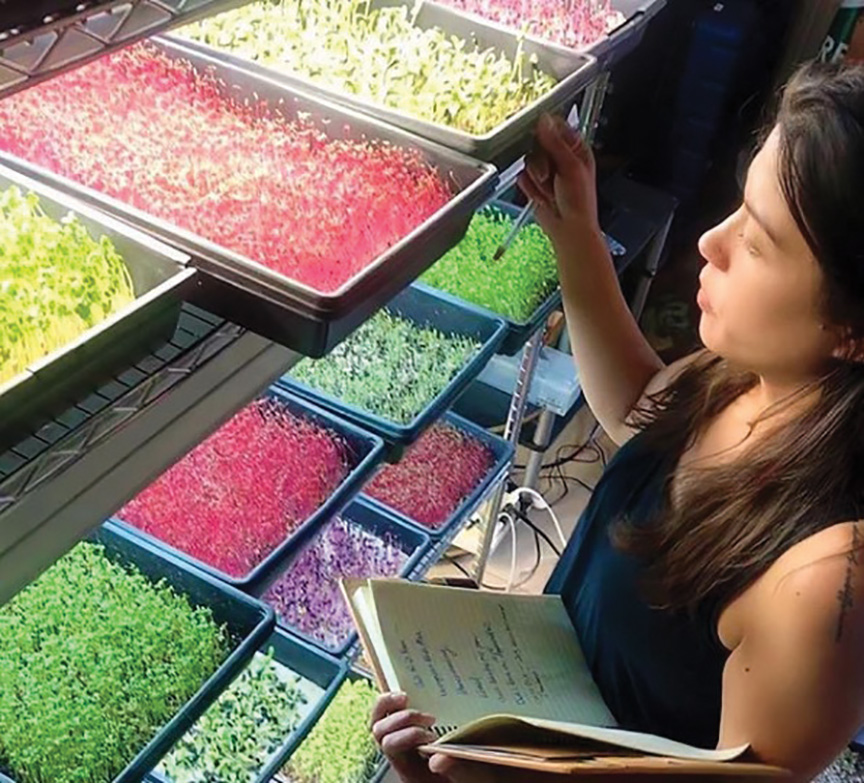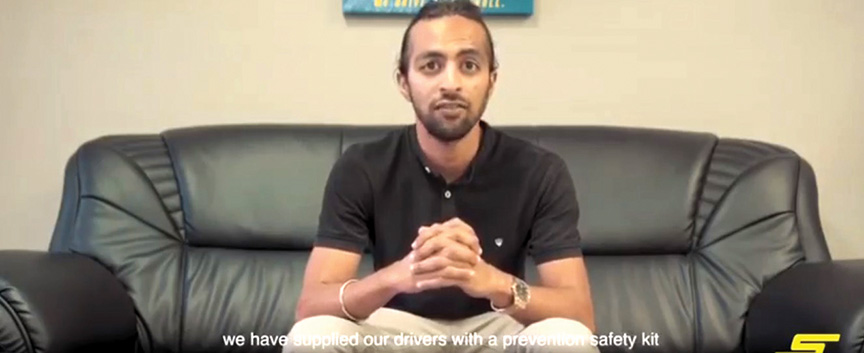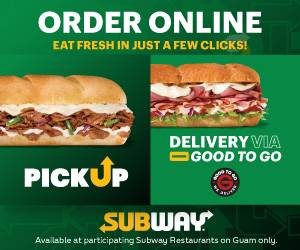
(From left) Kat Barnett, independent yoga instructor, and Livia Marati, yoga instructor and owner of Ina Wellness Collective. Marati’s company originally focused on wellness gatherings such as the “New Year’s Reset” shown in this Feb. 29 photo. Marati has since pivoted to online remote events.
Photo by Alexis Hope Photography, courtesy of Ina Wellness Collective
By Wayne Chargualaf
“Obviously we’re very concerned,” Catherine S. Castro, president of the Guam Chamber of Commerce, says. “Of course, the biggest concern has always been keeping our folks employed and having a regular paycheck.”
Castro says fears of the economic impact that were first contemplated in January have come to fruition.
“What we thought was going to be two weeks in March is still ongoing, and not knowing when Guam will be officially open — not knowing if visitors will feel it’s safe to travel — all of that impacts our ability to reopen and do business,” she says.

Castro
Although the federal government responded to the nation’s pandemic-related economic woes with the $2 trillion CARES Act — of which Guam expects to receive more than $1 billion, the funds are to be split up for a variety of purposes such as public health, unemployment benefits and education. About $20 million was set aside by the Guam Economic Development Authority for small businesses, and as useful as that was, many are concerned it still won’t be enough to prop up the economy long enough for it to recover.
“Our government has to take a look at various ways to help, and for us that includes rolling back the business privilege tax,” Castro said. “They need to be realistic. How are we going to realize any type of tax revenue if people are not in business and people are not employed?”
Castro says that businesses will have to adapt to the “new normal” if the economy has any hope of rebounding.
“When the federal money runs out and we don’t realize the revenues we were seeing in December right before the crisis, there are going to be a lot of changes,” she says. “Hopefully, we’ll see new types of businesses emerge, and the way our businesses adapt are going to have to embrace social distancing, new sanitation protocols — there’s just going to be a new way of engaging.”
Holly Rustick, president of the Guam Women’s Chamber of Commerce, says embracing change is the only way small businesses can survive in such an unprecedented environment.

Rustick
“Going back to the same old ways might work for a little bit — especially while the [Pandemic Unemployment Assistance and other federal assistance] is out and people have some money,” Rustick says. “But in the long term, we really need to look and see how we can provide value at this point in time. How can I provide value, take action and leverage my partners and resources? That’s really how we’re going to come out ahead.”
One business-owner who successfully took action and pivoted to a new way of doing things is Michelle Crisostomo, owner of Tiny Greens Guam, a microgreens supplier for hotels and restaurants and GU Hydro, a hydroponic systems supplier and consulting company.
Crisostomo lost her primary market for microgreens after hotels and restaurants shut down due to the pandemic, but was able to successfully turn to serving individuals and households. Part of this was achieved by increasing her company’s online presence to raise awareness of Tiny Greens, educate prospective customers about her company’s products, and provide a safe means of ordering and receiving produce.
Her advice for small businesses in this environment includes helping to support other small businesses and to stay connected to the community.
“Everyone is paying attention to what is being done to help their community,” Crisostomo says. “Doing your part to contribute can go a long way in helping others as well as provide a great support network for you and your business.”
Crisostomo also stresses the importance of making the most of downtime.

Tiny Greens Guam owner Michelle Crisostomo inspects microgreens in this August 27, 2019 photo.
Photo courtesy of Tiny Greens Guam
“When business is slow or completely shut down, this is the perfect time to revamp your operations and prepare for the future,” she says. “You can use this time to implement new operations such as being delivery friendly or improving your online presence by having internet-friendly services, updating your social media profiles and making your website easy to use and attractive.”
Livia Marati, founder of wellness company Ina Wellness Collective, is also a strong believer in turning unfilled hours imposed by the pandemic into productive time.
“Keep learning — use this time to build, create, design and find inspiration,” she says. “This unexpected quiet time has forced me to sharpen my craft as an event creator, health coach and yoga teacher.”
Marati’s company had initially focused on wellness retreats and gatherings. To abide by social distancing measures, she shifted focus to remote wellness coaching and corporate wellness programs, which had previously been a lower priority.
“Look for aspects of your business that are ‘pandemic proof’ — don’t rely on tourism or in-person gatherings — and lean into creating and nurturing those,” she says.
Of course, that has only been possible through technology, which is a key ingredient as many businesses attempt to adapt to the current climate.
“Don’t be afraid of the digital space,” Marati says. “There is now an active audience looking to engage on social media and open to attending events virtually. As a result, I’ve focused on building my online community and membership base and have piloted two donation-based virtual wellness experiences on Zoom.”
One local company that started with a technology focus is Stroll Guam, a mobile app-based ride sharing company founded by Amit Sachdev.

Stroll Guam CEO and founder Amit Sachdev explains his company’s measures to ensure rider and driver safety during a video posted March 22 on Instagram.
Photo courtesy of Stroll Guam Inc.
While many businesses have been striving to find ways to reduce customer contact, companies such as Stroll can only do so much. To ensure driver and passenger safety, Stroll — like most other companies — has provided supplies and imposed protocols such as providing all drivers with COVID-19 prevention kits that include masks, gloves, hand sanitizers and alcohol sanitizing wipes and requiring drivers sanitize their vehicles after dropping off each passenger. Sachdev said Stroll will also soon roll out technological improvements to improve safety as well as the driver and passenger experience.
“I believe all businesses should utilize technology as much as possible moving forward,” Sachdev says. “This can help businesses increase their transactions while following safety guidelines due to COVID-19. Protecting the wellness of both your existing and new customers as well as your employees will in turn grow your business exponentially.”
As the pandemic and the economy it has wrought continues to unfold, many owners are finding themselves in very different businesses than they had originally planned. But as Castro says, the key for businesses to survive in this economy is the same as it has been in every other economy.
“You have to ask, ‘What is the need?” Castro says. “What is the need and how am I going to fill it?”
















